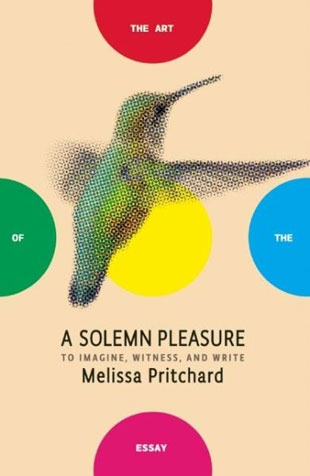"When authentic existence and art are conjoined, when one's life begins to consecrate the lives of others, here is the point where we cross the threshold into the impersonal and enter that sacred anonymity where all art addresses the loss of the Beloved, the yearning for reunion, where the Beloved and the artist, as Lover, reflect, reveal, and become each other.
"To create from this place, to remain here, requires, beyond patient listening, the cultivation of courage. . . .
"If, as John Gardner asserts in his book On Moral Fiction, true art is moral, if art instructs by seeking to improve life, then the artist finds herself, as Simone Weil insists, accountable. She must be conscious of what she espouses. To be accountable to the power of language and responsible at least for the conscious intent of one's stories demands courage on the part of the artist. And courage, as I think about it, seems to have something to do with the willingness to eternally, doggedly pursue truth, no matter what the threat to our safe notion of things.
"An almost intolerable tension exists between the mind's sense of its own eternity and the anguished awareness of life's mortality. To be capable of sustaining this tension, the artist must cultivate Keats' 'capacity for a negative genius,' a capacity to tolerate, endure, even thrive on uncertainty, to be capable of posing, as Chekhov claimed we must, the correct questions and not impose answers. To go where narrative events prove most dangerous, where the risk to the integrity of one's characters is highest, to refer not to secular laws of justice so much as to examine their disturbing exceptions demands courage. As Emile Zola said in 'J'Accuse,' 'I have but one passion, the passion for the light, in the name of humanity which has suffered so much and which is entitled to happiness . . .'
"We are in an age of extremes and exaggerations, poised between the psychic toxicity of two world wars and the unrelieved threat of global extinction. There are at least forty wars raging in the world today, and as we find ourselves bathed in a sickly green light of apocalyptic fever (in a recent poll, 60 percent of Americans believe the end of the world is close at hand), I suggest that, as writers, we strive to be witnesses to the events of recent history, that we be willing to give testimony in the face of whatever lies before us."
